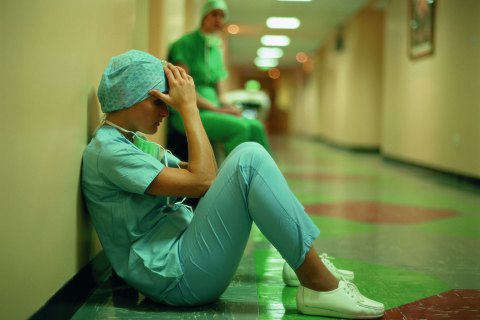How it varies in both doctors and patients
Everyone experiences stress when facing surgery and this is certainly true for patients, but even in the case of surgeons, if quantitative measurements are taken, it can be observed that the surgical experience affects emotional control and physiological parameters such as heart rate and breathing rhythm.
In early-career surgeons, stress gradually decreases as experience is gained and more and more operations are performed.
Interesting in this regard is a study, carried out at the Hanusch hospital in Vienna, which specifically aimed to measure stress levels in both surgeons and patients during the cataract surgery. The Neuromaster system was used to measure certain parameters indicative of stress levels, such as sweating, heartbeat and breathing rate.
The study was presented at the ESCRS 2018 Winter meeting, which was held in Belgrade, Serbia, and Dr Stefan Palkovits, who leads the team of researchers, stated that "In the patients we could observe that the stress level was lower during the second eye surgery, which could explain why, in contrast, patients in this second circumstance were more sensitive to pain and discomfort."
Three surgeons with different levels of experience were observed in the study.
Stress parameters were measured during a mathematical test and then during 4 successive cataract operations over the course of 1 day.
Surgeons also had to provide a subjective stress rating on a scale of 1 to 10.
During surgery, the most experienced surgeon presented a stable heartbeat and breathing rhythm, with a slight increase during phacoemulsification and IOL implantation.
In the surgeon with intermediate level of experience and the beginning surgeon there were peaks during capsulorhexis, phacoemulsification and IOL implantation, and whenever something unexpected occurred, such as using a new instrument for the first time or an IOL in which the loops had initial difficulty opening.
The first surgery of the day was by far the worst in terms of stress, which was progressively reduced in the course of subsequent procedures.
The subjective stress assessment matched the objective data.
'It is interesting to observe' stated Dr Palkovits, "that for the most experienced surgeon, surgery was less stressful than the maths test, which actually consisted of a simple operation".
References:
Palkovits S, Falasinnu J, Bijak M, Starzengruber, Kefer K, Hirnschall N, Findl O. Surgical stress quantified.
VIROS - Vienna Institute for Research in Ocular Society - Hanusch Hospital, Vienna (Austria)
Presented at the European Society of Cataract and Refractive Surgeons winter meeting; Feb. 9-11, 2018; Belgrade, Serbia.
Dr. Carmelo Chines
Direttore responsabile

